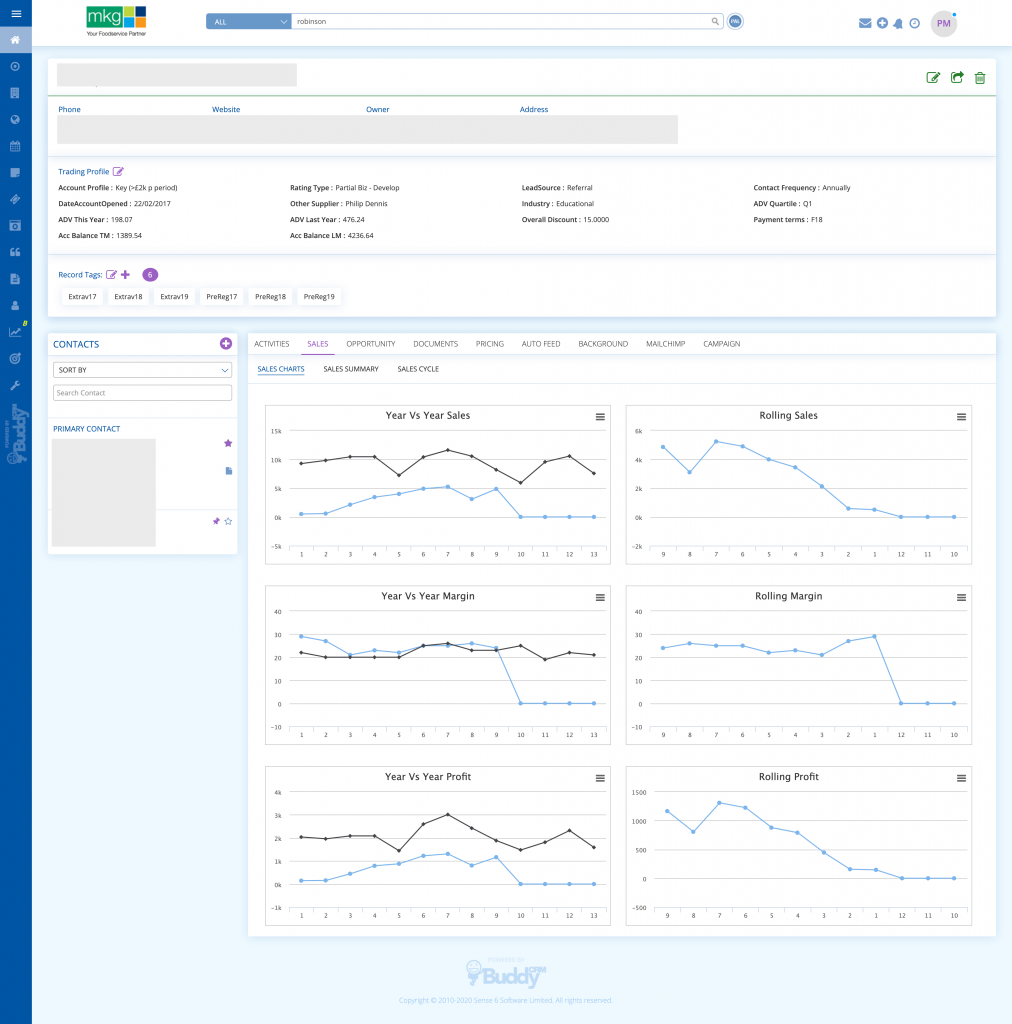Setting sales goals is a critical part of any sales strategy. But how do you set goals that are both realistic and achievable? And how can you ensure that your sales team is motivated to hit those goals?
This post discusses how to set realistic sales goals, the importance of using CRM software, and how to motivate your sales team to hit their targets.
What are sales goals?
Sales goals are measurable objectives that sales reps and teams use to guide them through their day-to-day sales activities and help them make big-picture strategic decisions. Sales goals are usually based on KPIs and specific sales metrics.
Common sales goals might include:
- Increasing revenue by a certain percentage
- Increasing the number of leads generated
- Increasing the number of sales appointments booked
- Increasing the number of deals closed
- Decreasing the average customer acquisition cost
- Hitting a defined profit margin per sale
Why setting realistic goals matters
Sales goals are not just numbers to be met; they serve as vital benchmarks that help evaluate individual and team performance. By setting realistic and achievable goals, you can:
- Motivate your sales team: Realistic goals give your sales team something to work towards, boosting their morale and productivity. Setting unattainable targets can lead to frustration and diminished effort.
- Measure progress: Sales goals provide a clear measurement of success, allowing you to track your team’s progress and identify areas for improvement.
- Align with company objectives: Achievable sales targets contribute to the organization’s overall growth and success, ensuring that the sales team remains an essential part of the company’s strategy.
Set SMART sales goals:
Smart is a useful framework for setting goals. A quick synopsis of its rules follows below. There are many other methodologies for goal setting available but SMART has become popular probably due to its easy-to-remember mnemonic.
- Specific: The goal should be clearly defined and measurable.
- Measurable: The goal should be able to be tracked and monitored.
- Achievable: The goal should be realistic and achievable.
- Relevant: The goal should be relevant to the company’s overall sales strategy.
- Time-bound: The goal should have a specific deadline.
Here are a few key things to keep in mind when setting sales goals:
- Start with your current data. Take a look at your historical sales data and identify trends. This will help you to set realistic goals for the future.
- Consider your market. What is your target market like? What are their needs and wants? This will help you to set goals that are relevant to your business.
- Be specific. Don’t just say that you want to increase sales. Instead, set specific goals, such as increasing sales by 10% in the next quarter.
- Break down your goals. If you have a big goal, break it down into smaller, more manageable goals. This will make it seem less daunting and more achievable.
- Track your progress. Once you have set your goals, it’s important to track your progress. This will help you to stay on track and make sure that you are on pace to hit your goals.
The role of CRM software in setting sales goals
CRM software is a valuable tool for setting realistic sales goals. A CRM can help you to track your sales data, identify trends, set specific goals based on historical information, set expected best practice results for a team, track progress against goals, and provide reports to sales individuals and sales team management.
- CRM software can help you track your sales data. Integrating your CRM with your sales data ensures this information is available to all sales team members. This data can help you to identify trends and patterns in your sales and, therefore, be used to set realistic goals for the future.
- CRM software can help you identify your target market. A CRM can help you identify your target market’s needs and wants. This information can be used to set goals relevant to your business.
- CRM software can help you set specific goals. CRM software can help you to set specific goals, such as increasing sales by 10% in the next quarter.
- CRM software can help you identify patterns in customer behaviour, preferences, and needs, allowing you to make data-driven decisions and set achievable targets.
- CRM software improves the sales process. CRM systems can streamline sales processes, making it easier for your team to focus on achieving its goals.
- CRM software can help you to track your progress. CRM software can provide reports on activity within the database to track your progress and ensure you are on track to hit your goals.

Motivating Your Sales Team
One of the key reasons for setting realistic sales goals is to avoid a demotivated sales team. Goals that seem out of touch with reality or ‘impossible’ will create an atmosphere of distrust between management and the sales team.

Here are a few things sales management can do to motivate the sales team to reach their sales goals:
- Set clear goals. Ensure that your sales team knows their goals and what they need to do to achieve them.
- Include team members in setting goals. Give your employees the chance to weigh in and share their ideas as well. New findings from the Workforce Institute highlight the significant influence of acknowledging and listening to employees on their efficiency, involvement, and retention. Indeed, employees with high engagement levels are over three times more likely to feel listened to in their work environment, while 74% of workers indicate increased effectiveness when they feel their voices are heard. Therefore, involving your team members in the goal-setting process serves as an excellent method to unite the group and foster collective progress in a constructive manner.
- Provide regular feedback. Give your sales team regular feedback on their progress. Offer assistance with difficult deals and refrain from tantrums if sales targets are unlikely to be hit. Keeping the sales teams abreast of progress with automated reports from the CRM will also let them know individual progress towards goals. This will help them to stay motivated and on track.
- Offer incentives. Consider offering incentives to your sales team for hitting their goals. This could be anything from a bonus to a free vacation. Be careful about what incentives you offer. They can encourage short-term thinking. ie. a short-term effect on sales before results return to the norm and behaviour that you may not have expected from your team as they do anything to meet a short-term incentive.
- Create a positive work environment. Create a positive work environment where your sales team feels valued and motivated. Encourage team members to help each other with sales, offer advice when required, and be prepared to back deals to get them over the line with your presence in meetings, financial incentives or alternative rewards (such as hospitality events).
By following these tips, you can set realistic sales goals, use CRM software to track your progress and motivate your sales team to hit their targets.
Here are a few additional tips for setting realistic sales goals:
- Be flexible. Things don’t always go according to plan, so it’s important to be flexible when setting sales goals. If you find that you’re not on track to hit your goals, don’t be afraid to adjust them accordingly.
- Be realistic. It’s essential to set goals that are realistic and achievable. If you set too ambitious goals, your sales team will likely become discouraged and give up.
- Be positive. A positive attitude can go a long way when it comes to setting sales goals. If you believe that your sales team can hit their goals, they’re more likely to actually do it.
- Be supportive. It’s important to be supportive of your sales team when they’re trying to hit their goals. Encourage them and help them to overcome any obstacles they may face.
By following these tips, you’ll set realistic sales goals that will help your sales team to achieve their targets.
Sales goals can be a powerful motivator for sales reps and teams. When used effectively, they can help to drive sales growth and improve overall business performance.
Realistic sales goals are within reach of sales teams with the right tools – CRM, the right motivation, and positive clear communication with the team.

